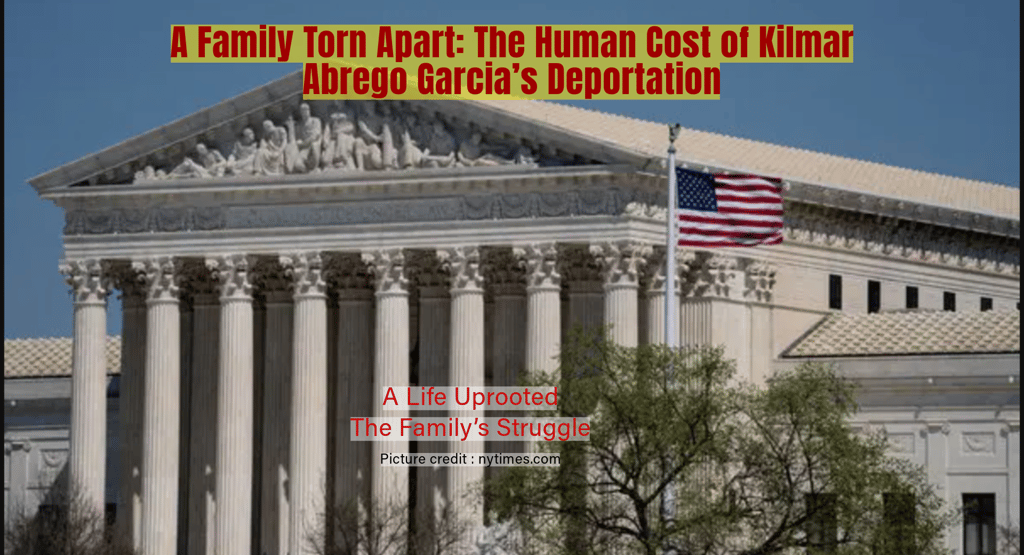A Family Torn Apart: The Human Cost of Kilmar Abrego Garcia’s Deportation
4/22/20252 min read


A Family Torn Apart: The Human Cost of Kilmar Abrego Garcia’s Deportation
Introduction
Jennifer Vasquez Sura wakes up each day wondering if her husband, Kilmar Abrego Garcia, will ever return home. Deported to El Salvador’s brutal CECOT prison in March 2025, Garcia left behind a wife, three children, and a life built in Maryland. His story reveals the devastating ripple effects of deportation on families, especially when due process fails.
A Life Uprooted
Garcia entered the U.S. illegally in 2011 at 16, fleeing gang violence. By 2019, he was married to Vasquez Sura, a U.S. citizen, raising a disabled son and two stepchildren. With a work permit and a withholding of removal order, he checked in yearly with ICE, maintaining a clean record. But a March 2025 traffic stop changed everything. ICE detained him, citing unproven MS-13 allegations, and deported him despite a court order.
The Family’s Struggle
Vasquez Sura now faces financial and emotional hardship. As the sole provider, she struggles to support her children, including a son with disabilities. The loss of Garcia’s income threatens their stability, a common plight for the 8.5 million U.S. citizens in mixed-status families. Studies show deportation can slash household income by 62.7%, pushing families toward poverty.
The emotional toll is profound. Garcia’s children live with fear and uncertainty, common among the 5.1 million U.S. citizen children with undocumented family members. Research links parental deportation to depression, disrupted education, and long-term health issues in children. Vasquez Sura told ABC News their “happiness was destroyed,” a sentiment echoed by many families.
Systemic Failures
ICE’s 2017 Detained Parents Directive offers little protection, lacking guidance on prosecutorial discretion for parents. If Garcia had been detained longer, his children risked foster care, as federal law may terminate parental rights after 15 months of separation. His swift deportation left no time for childcare arrangements, highlighting gaps in coordination between ICE and child welfare systems.
A Path Forward
Garcia’s family awaits his return, ordered by the Supreme Court but stalled by U.S. and Salvadoran resistance. Comprehensive immigration reform, including pathways to legalization, could prevent such separations. Community support—legal aid, financial assistance, and mental health resources—could ease the burden on families like Vasquez Sura’s.
Thought Questions:
How can communities support families facing deportation-related hardships?
Should immigration policies prioritize family unity over enforcement?
What long-term effects might Garcia’s children face, and how can society mitigate them?
hello@boncopia.com
+13286036419
© 2025. All rights reserved.